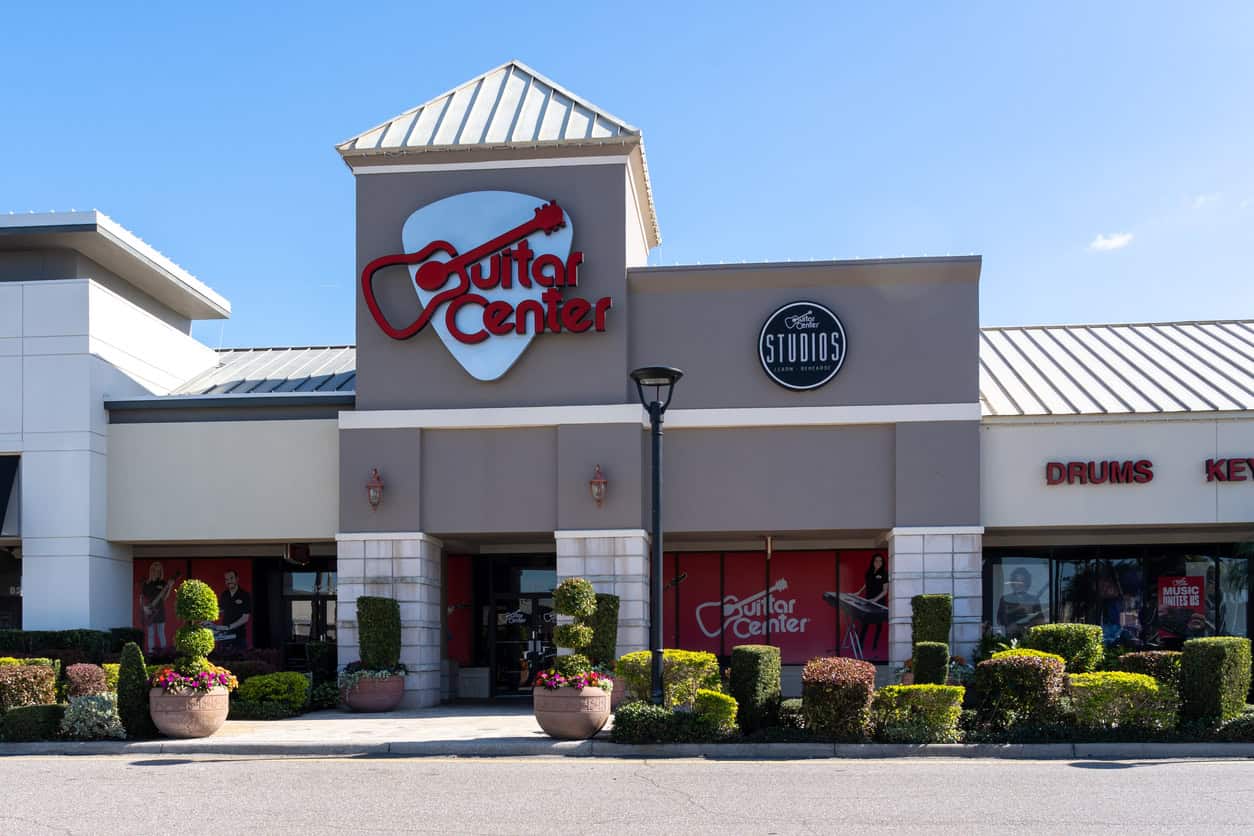
iStock.com/JHVEPhoto
Should Guitar Center Go Upscale To Survive?
As competitor Sam Ash goes out of business, Guitar Center’s new CEO plans to emphasize “premium” products to return to the chain’s roots of focusing on “serious” musicians.
“Our core customer is the serious musician — the gigging artist or the passionate player where music is a big part of their identity,” Gabe Dalporto, who was appointed CEO last October, told Music Inc. Magazine. “Over the years, we’ve evolved significantly into serving the beginner and entry-level customer — which is great — but if you walk through a GC store, you’re going to see an awful lot of $300 guitars and $300 digital drum kits.”
“We have some premium product, but we don’t have enough,” Dalporto added. He further noted that most of the premium product is locked up high on walls and hard to access.
“I want customers to walk into [a store] and have the same experience I had when I was younger and just be hit in the face with, ‘Wow, this is amazing. This is a playground. This is where I belong,’” he explained. “And that means having a much more premium assortment that’s more easily accessible where I can get in and grab a guitar and plug it in and try all these pedals and effects and just geek out and have a great time.”
Beyond products and merchandising, Dalporto plans to invest in his sales team’s “consultative skills” so they can help customers “really experience the magic of some of these instruments.”
“We need to be consultative and relationship-driven,” Dalporto said. “If I help you find the instrument of your dreams, and I give you a great experience and I check in on you and make sure everything is good, you’re going to come back and you’re not going [to] come back to Guitar Center, you’re going to come back to me, the sales associate at your local Guitar Center.”
Guitar Center, with over 300 stores, emerged from bankruptcy in December 2020 with a filing blamed on COVID-19-related store closures and a looming debt maturity tied to a leveraged buyout led by Bain Capital. However, the chain pre-pandemic was already struggling to compete against online rivals such as Sweetwater and Amazon.
Last week, Sam Ash, the second-largest music instruments retailer after Guitar Center, said it was closing all its remaining 42 locations after 100 years in business due to continued pressures from e-commerce.
“A lot of this has been the move to online shopping,” Derek Ash, the chain’s chief marketing officer, told the New York Times. “There are so many choices, and to maintain a store with that much selection is very difficult.”
Luis Infantas, a manager at the West 34th Street store, noted that “showrooming,” or a customer trying an instrument in-store only to buy it cheaper online, continued to be a problem.
A RetailWire article from 2018 explored other potential symptoms of the long struggles of musical instrument stores, including being unwelcome to women, being located in rundown areas that turn off families, staff lacking knowledge of the latest recording technology, poor integration with online operations, and the declining popularity of the electric guitar.
Discussion Questions
What do you think of Guitar Center’s planned shift to target more seasoned musicians with premium products versus beginners with entry-level items?
What solutions do you see to mitigate online and other pressures facing music instrument stores?
